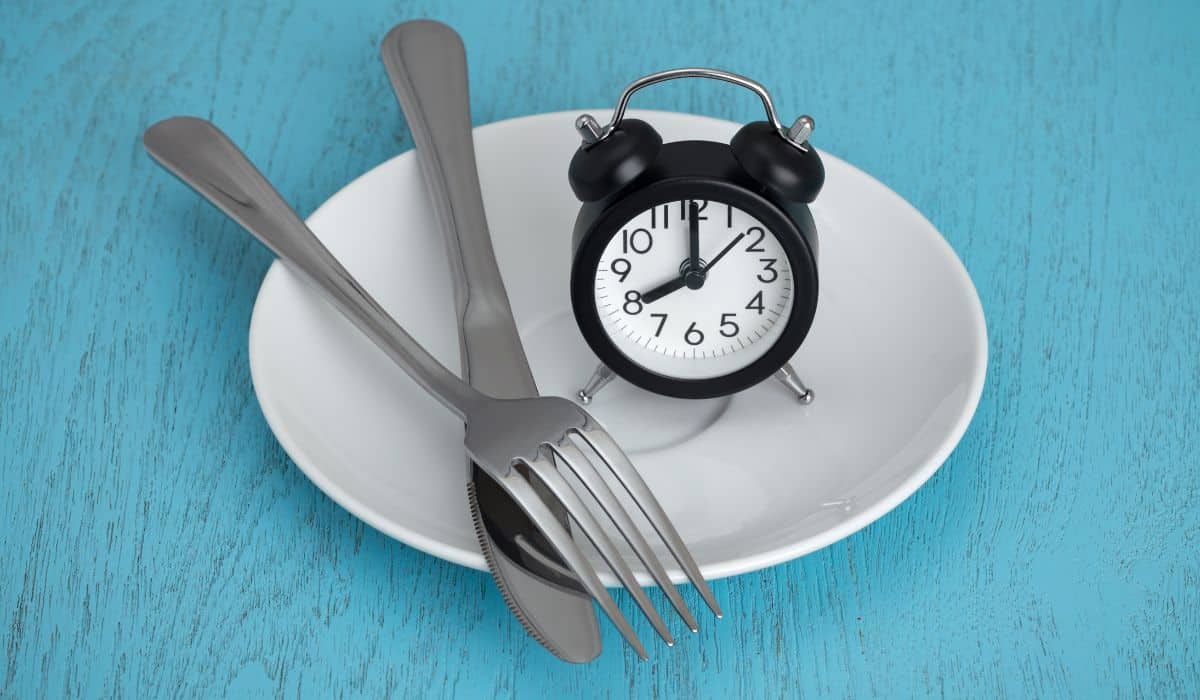“Starvation mode:” it’s the boogeyman of diets everywhere, but it’s hard to know what to say about it when the people worrying about it can’t agree on a definition! Whether or not any such thing as “starvation mode” actually exists depends on what you mean by the term.
What Is “Starvation Mode?”

The basic idea of “starvation mode” is that your body can tell when it’s not getting enough calories, assumes there’s a famine going on, and pulls out all the stops to prevent any further weight loss.
It’s not controversial at all that weight loss causes metabolic adaptation (more on this below). But the big question is: does starvation mode completely stop weight loss, or just make it increasingly difficult? Can/does it actually cause weight gain? The answers to those questions are the difference between "starvation mode" as scare-tactic nonsense and "starvation mode" as a serious problem.
Metabolic (and Other) Adaptation to Weight Loss
It’s objectively that if you reduce calories enough to lose weight (whether or not you’re counting them, which is a completely different question), your whole body will adapt in ways that resist weight loss. Body temperature drops (so you can burn fewer calories to keep yourself warm); levels of thyroid hormone drop; levels of other hormones like leptin and ghrelin change. If you want to read all about it, you can do it here.
This is a survival mechanism. You can reduce the damage, but it’s impossible to avoid completely, and you can’t cheat it with hot peppers or green tea or anything else. The only way to avoid it is to never reduce calories below the level needed to maintain your weight.
The adaptation is not just because calorie restriction causes weight loss, and a smaller body takes less energy to fuel. Participants in this study, were all participants in The Biggest Loser, so if there ever was an extreme crash diet, they were eating it. In 30 weeks, the participants lost an average of 57.6 kilograms (127 pounds), around 40% of their initial weight.
Obviously, you’d expect someone to burn fewer calories per day if there are 127 pounds less of that person to fuel. But by Week 6, the subjects resting metabolic rate decreased by 244 calories more than the weight loss could account for. By Week 30, the gap was 504 calories per day. That was without a significant reduction in muscle mass (since they were exercising so much).
At the end of the study, the authors concluded:
…exercise did not prevent dramatic slowing of resting metabolism out of proportion to weight loss. This metabolic adaptation may persist during weight maintenance and predispose to weight regain unless high levels of physical activity or caloric restriction are maintained.
Once it’s been slowed down, metabolism rebounds a little bit but remains much lower than pre-diet levels. This study found that 8 weeks after the subjects’ weight stabilized on a maintenance diet, their resting metabolic rate was not significantly higher than it had been on a diet.
Then there are behavioral and psychological effects. One classic study on this is the Minnesota Starvation Experiment, run by Ancel Keys in the 1950s (yes, the same Ancel Keys who hated saturated fat!).
- Subjects became fixated on food. Some of them started obsessively reading cookbooks (remind you of any food-porn-obsessed dieters?) or buying other people food to sit there and watch them eat it.
- Subjects spontaneously reduced physical activity. (Recent research on non-exercise activity indicates that this could reduce several hundred calories of energy expenditure).
- Subjects became irritable, anxious, and depressed.
If this is what you’re calling “starvation mode,” then yes, it does exist. And it’s awful!
Slower Loss vs. Total Stall

But the claim of “starvation mode” isn’t just that calorie restriction sucks. It’s that there’s some threshold level of calories that will make your body freak out so badly that you completely stop losing weight or even start gaining weight. But that’s definitely not what you’ll find in the actual literature or even in a quick survey of reality.
People in major famines die of starvation all the time. If eating below 1200 (or however many) calories and exercising a lot caused weight loss to stall, how did so many people keep losing weight to the point of literally dying of starvation in Cambodia in the 1970s? Or Ireland in 1845? Or any other major famine? If there were actually a level of energy deficit that made it physiologically impossible to lose more weight, this would never happen.
To take a less horrifying example, people after bariatric surgery eat absolutely tiny amounts of calories (less than 1000 calories/day) and lose weight rapidly. Bariatric surgery has a much higher long-term success rate than any other known method of weight loss.
This does not mean that starving yourself is good or healthy. Nobody is saying that. But it does show that under conditions where starvation is strictly enforced, there is no such thing as a magic level of calorie deficit that causes weight loss to stall or reverse.
It’s the “strictly enforced” that’s the killer.
Real Life vs. the Minnesota Starvation Experiment
In major famines, or The Biggest Loser, or the Minnesota Starvation Experiment, the calorie restriction is brutally enforced completely regardless of what the starving person wants. These are not situations that imitate anything like most people’s real life.
Put bariatric surgery aside for a second, because it's a special case where the surgery also affects appetite hormones and other relevant physiological responses in different ways. For people who haven't had surgery (the vast majority), it’s cruel and unreasonable to expect anyone to endure the level of fatigue, dizziness, hair loss, cold hands, brain fog, and overall misery necessary to keep creating a calorie deficit past a certain level.
Remember all the psychological symptoms of the Minnesota Starvation Experiment? Who wants to live like that? Most people want to lose weight to improve their lives. They don’t want to lie on the couch being dizzy and woozy and exhausted, constantly snapping at everyone around them and subject to crazy mood swings at the slightest provocation. This kind of life defeats the entire point of the weight loss in the first place.
And if someone can’t endure exercise on top of that diet, they’ll obliterate their own muscle mass, which makes them weak and more susceptible to weight gain the minute they start eating more.
Most people simply can’t do it: they crack and break the diet (often with a binge that does more damage than their normal eating habits would have if they’d never gone off the diet on the first place). This is caused by overwhelming physiological and psychological pressure to eat and survive, not weakness.
Summing it Up
Here’s what’s true and false about “starvation mode:”
Not true: “If you reduce calories low enough, your body physiologically stops losing weight regardless of how much you eat.”
True: “If you reduce calories low enough for long enough, you will reach a point where your body resists weight loss so strongly that further loss becomes unrealistically miserable and 95% of people will crack and start eating again.”
True: “When the 95% of people crack and start eating again, fat regain happens more quickly thanks to their suppressed metabolic rate and their decimated muscle mass.”
“Starvation mode” in the true sense is very individual. There’s no magical number of calories for everyone. It’s also long-term: skipping lunch will not get you anywhere close to it.
In the true sense, “starvation mode” is serious and dangerous. You can really hurt your body that way, and the damage stays at least for a few months after the diet ends. It’s one reason why 1200-calorie crash diets cause rebound weight gain so often. But it doesn’t stop weight loss because there’s some magical starvation mechanism that overrides a calorie deficit; it stops weight loss by forcing you to eat more. In situations where the starvation is non-negotiable, weight loss continues.





Leave a Reply